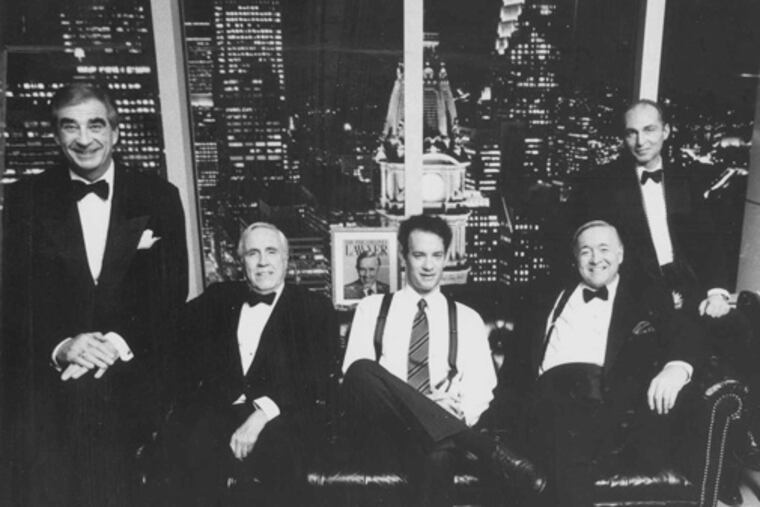It’s 30 years of Jonathan Demme’s ‘Philadelphia.’ Watch it at Bryn Mawr.
Starring Tom Hanks and Denzel Washington, the film “stands the test of time in one important way,” Ursinus College professor Jennifer Fleeger said.

Many significant films have been filmed and set in the city of Philadelphia, but only one carries the city’s name. Jonathan Demme’s Philadelphia marks its 30th anniversary this December.
To Jennifer Fleeger, professor of Media and Communication Studies at Ursinus College, Philadelphia captures a specific time in the history of the city and the overall arc of the AIDS epidemic. On Tuesday, March 14, at 6:30 p.m., Fleeger will host a Cinema Classics Seminar on Philadelphia at the Bryn Mawr Film Institute. It’s part of the theater’s “Philadelphia Stories” series.
Philadelphia was the first major Hollywood studio movie with AIDS as its primary subject, and it arrived more than a decade after the AIDS epidemic began. There had been independent movies and documentaries before that, but Philadelphia was the first big movie — and getting it made required two of the world’s biggest movie stars and a director whose previous film had swept all the major Academy Awards.
”Philadelphia films are often about underdogs,” Fleeger said. “The film is a David and Goliath story about these two men fighting a giant law firm.”
The film stars Tom Hanks, who won an Oscar, as Andrew Beckett, a lawyer who is fired from a white-shoe law firm in Center City, after they discover that he has AIDS. After every major attorney turns down his lawsuit, Andrew enlists Joe Miller (Denzel Washington), a relatively small-time personal injury lawyer who argues the case against homophobes even though he’s something of a homophobe himself.
The seminar will begin with a 30-minute introduction, followed by the film, and then a discussion. Fleeger will touch on the history of queer representation in Hollywood and how Philadelphia fits into that.
Another topic of discussion is the film’s visual style, including “the way Demme trains us to look at men for telltale signs of AIDS and homosexuality by giving us these looks in which characters stare into the camera.” Fleeger described this as “the paranoid gaze.”
Bruce Springsteen’s “Streets of Philadelphia,” which memorably opened the movie over shots of the circa-1993 Center City skyline and other city landmarks, won Philadelphia’s other Oscar.
“The film [did] change the conversation about AIDS for the better in 1993,” Fleeger said, but that “at the same time, it still relies on a number of stereotypical tropes that are often used to depict gay men.”
The LGBTQ community has had a somewhat complex relationship with Philadelphia.
“Even when I saw the film at the premiere, I was disappointed that Andrew and Miguel never had a proper kiss. It was frustrating that the film’s depiction of a gay couple — especially where a character was living with AIDS — resisted this,” film critic Gary M. Kramer, who writes for Philadelphia Gay News and Salon, among other publications, said. “Similarly, while I appreciated the efforts not to make Andrew into a gay stereotype, it still leaned into tropes, like Andrew’s love of opera.”
“Despite these objections, I still admire the film, especially for providing teachable moments about AIDS and discrimination towards the LGBTQ community that were valuable at the time and remain important to remember today,” Kramer added.
This movie stands the test of time in one important way, Fleeger said, “and that’s the way it archives the emotional feeling of 1993. I think when you watch this film, if you were alive in 1993, that set of discourses and feelings rises up again.”
“Cinema Classics Seminar: Philadelphia,” March 14, 6:30 p.m. at Bryn Mawr Film Institute, 824 W. Lancaster Avenue, Bryn Mawr. https://brynmawrfilm.org/event/cinema-classics-seminarphiladelphia/